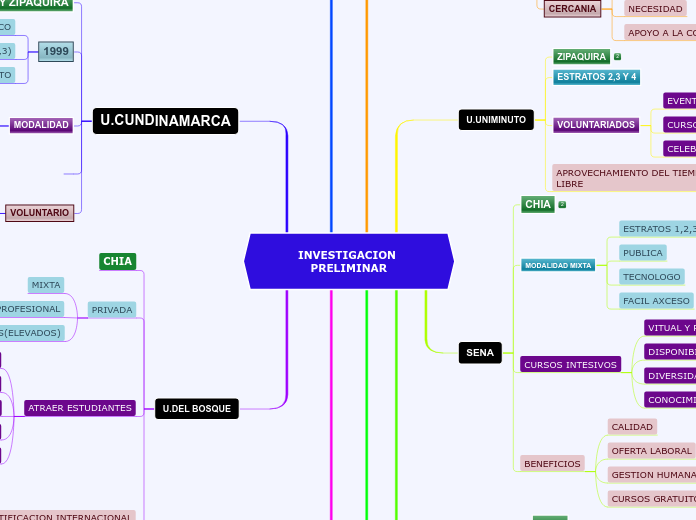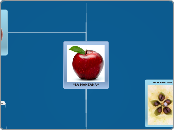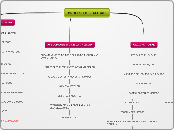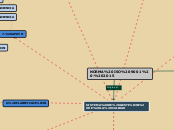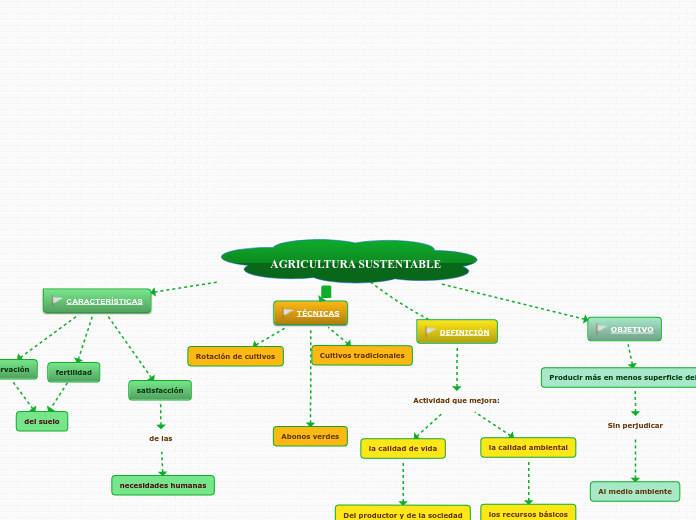JOHAN ANDRES FIGUEROA
ESTEBAN RUBIO JIMENEZ
FELIPE RUBIO JIMENEZ
ALEXANDER FORERO BERNAL
JUAN CAMILO BERMUDEZ
LAURA CATALINA JIMENEZ
CONDUCTUAL
PICTOGRAFICO
DEMOGRAFICO
GEOGRAFICO
INVESTIGACION PRELIMINAR
The part of speech is a category to which a word is assigned according to its syntactic functions. In English the main parts of speech are noun, pronoun, adjective, determiner, verb, adverb, preposition, conjunction, and interjection.
U. SABANA
A preposition is one of the most exciting parts of grammar. A preposition is used to describe the location of something in relation to something else.
Participle preposition consists of words that end in “ing”.
ESPACIOS PERSONALIZADOS
TECNOLOGICO
PRESTIGIO
MOTIVACION PERSONAL
When a preposition consists of more than one word, it is called double preposition.
TALENTO HUMANO
PROFESIONALISMO
INFRAESTRUCTURA
Compound preposition consists of two or more words.
ESTATUS
CONDICION LABORAL
ESTRATO
When a preposition consists of one word it is called single or simple preposition.
in, at, on, to for, of, from, up, after, over, under, with, etc.
U.DEL BOSQUE
An interjection is used to express emotion in a sentence.
Think of other interjections!
CERTIFICACION INTERNACIONAL
FORMACION Y DESARRROLLO PROFESIONAL
ATRAER ESTUDIANTES
EVENTOS CULTURALES
PRESENTACION DE PRUEBAS Y EXAMEN
ACTIVIDADES
VARIEDAD DE IDIOMAS
INGRESOS ECONOMICOS(ELEVADOS)
PROFESIONAL
MIXTA
U.CUNDINAMARCA
An adverb is used to describe a verb, but it can also describe an adjective or another adverb.
Adverbs normally help paint a fuller picture by describing how something happens.
VOLUNTARIO
REALIZACION PERSONAL
MODALIDAD
PRECIO
PRECENCIAL Y VIRTUAL
NIVELES HASTA C2
1999
The intensifiers strengthen adverbs adjectives and adverbs and down- toners make them weaker.
MIXTO
ESTRATO (1,2,3)
PUBLICO
CHIA Y ZIPAQUIRA
Just, Afterward, Soon, Currently
U. MILITAR
A numeral is a word or phrase that describes a numerical quantity.
Some theories of grammar use the word 'numeral' to refer to cardinal numbers that act as a determiner to specify the quantity of a noun, for example the 'two' in 'two hats'.
METAS PERSONALES
APRENDIZAJE
FORMACIÍON
MODALIDADES
EXPERIENCIA
SUPERINTENSIVO
INTENSIVOS
REGULARES
JOVENES ENTRE 18 Y 30 AÑOS
formación universitaria y colegial
estudiar, estrato (2,3,4)
1982
publica
privada
facultad de educación y humanidades
CONCLUSIONES
A conjunction is a word like 'if' 'but' or 'and' which is used to connect sentences or clauses together.
LA VARIEDAD DE UNIVERSIDADES
Subordinating conjunctions are conjunctions that are used at the beginning of subordinate clauses. Some examples of these conjunctions are: although, after, before, because, how, if, once, since, so that, until, unless, when etc.
MIENTRAS QUE OTROS CENTROS EDUCATIVOS PARA ESTRATOS MEDIOS ES MAS FUNCIONAL EL SENA Y LAS UNIVERSIDADES PUBLICAS. CON MEJOR ACCESIBILIDAD .
LA SABANA COMO CENTRO ESPECIALIZADO EN EL AEREA PERO CONLLEVA COSTOS ALTOS
UNICOC
A pronoun is a word that can be used in place of a noun, typically after the noun itself has already been stated.
RECONOCIMIENTO
Unlike demonstrative pronouns, which point out specific items, indefinite pronouns are used for non-specific things. This is the largest group of pronouns. All, some, any, several, anyone, nobody, each, both, few, either, none, one, and no one are the most common.
BENEFICIOS E INCENTIVOS
INTERCAMBIOS
DOCENTES EXTRANJEROS
Demonstrative pronouns are used to demonstrate (or indicate). This, that, these, and those are all demonstrative pronouns.
ATREAER ESTUDIANTES
EXPERIENCIAS( EVENTOS,FERIAS, ACTIVIDADES)
TALLERES DE INGLES
CAMPUS CAMPESTRE
Possessive pronouns are used to show possession. The possessive pronouns are mine, yours, his, hers, ours, and theirs.
ESTRATOS 3 Y 4
The personal pronouns are I, you, he, she, it, we, they. More often than not (but certainly not always), they replace nouns representing people.
He, They
SENA
An adjective is a word that's used to describe a specific noun and to provide more detail to the listener.
BENEFICIOS
CURSOS GRATUITOS
GESTION HUMANA
OFERTA LABORAL
CALIDAD
CURSOS INTESIVOS
CONOCIMIENTO
DIVERSIDAD DE NIVELES
DISPONIBILIDAD
VITUAL Y PRECENSIAL
MODALIDAD MIXTA
Superlative adjectives demonstrate a higher level of comparison between entities.
TECNOLOGO
PUBLICA
ESTRATOS 1,2,3
CHIA
Expresses a comparison between two entities or groups of entities in quality or degree.
He is taller than she is.
U.UNIMINUTO
A noun is defined as a person, place, thing or idea. Proper nouns always begin with a capital letter. Common nouns, which are general words, such as 'cars,' are not capitalized.
APROVECHAMIENTO DEL TIEMPO LIBRE
VOLUNTARIADOS
Compound nouns are words where two nouns have been stuck together to make a new noun. Compound nouns should be written as one word, without a hyphen.
CELEBRACIONES
CURSOS PARA NIÑOS Y JOVENES
EVENTOS
ESTRATOS 2,3 Y 4
A noun which refers to a group of things/people.
ZIPAQUIRA
Proper nouns are the names of specific people or places. They should always begin with a capital letter.
Create sentences
Mary, Paris
U.BELTRAN
A verb is an action word or 'doing' word that signifies movement in some way.
CERCANIA
An auxiliary verb helps the main (full) verb and is also called a 'helping verb.' With auxiliary verbs, you can write sentences in different tenses, moods, or voices.
APOYO A LA COMUNIDAD UMB
NECESIDAD
FACIL AXCESO
EXAMEN DE ADMISION
A participle is a verb form that can be used as an adjective or to create a verb tense. There are two types of participles: Present participle (ending -ing) and Past participle (usually ending -ed, -d, -t, -en, or -n).
BECAS Y BENEFICIOS
CURSO PARA LOS ADMINISTRATIVOS
POR NIVELES
AREAS ESPECIFICAS EN IDIOMAS
ESTRATATOS 3,4
A linking verb connects the subject with a word that gives information about the subject, such as a condition or relationship.
CIENCIAS Y DEPORTES
INGENIERIAS
LICENCIATURAS
SEDE CAMPESTRE
PRIVADA
CAJICA
A verb with its own meaning: a verb that is not an auxiliary verb.
